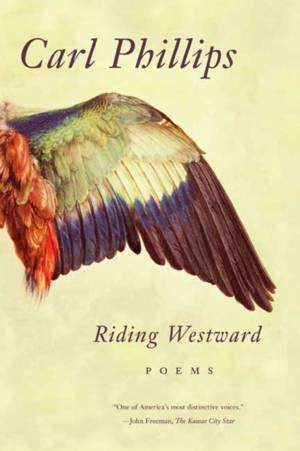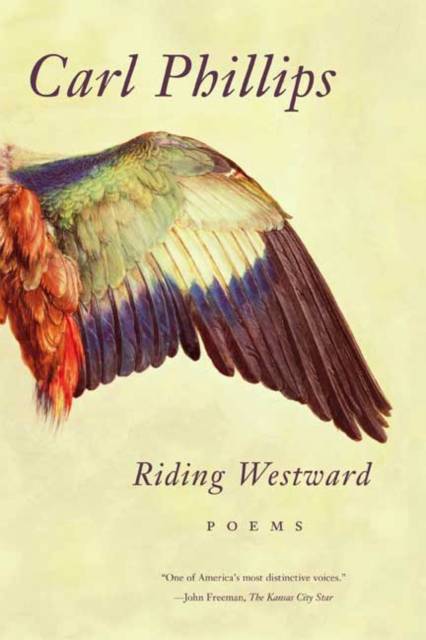
- Afhalen na 1 uur in een winkel met voorraad
- Gratis thuislevering in België vanaf € 30
- Ruim aanbod met 7 miljoen producten
- Afhalen na 1 uur in een winkel met voorraad
- Gratis thuislevering in België vanaf € 30
- Ruim aanbod met 7 miljoen producten
Zoeken
Omschrijving
In Riding Westward, Carl Phillips wields his celebrated gifts for syntax and imagery that are unmistakably his own--speculative, athletic, immediate--as he confronts moral crisis.
The singer turning this and that way, as if watching the song itself--the words to the song--leave him, as he
lets each go, the wind carrying most of it,
some of the words, falling, settling into
instead that larger darkness, where the smaller darknesses that our lives were lie softly down."
--from "Riding Westward" What happens when the world as we've known it becomes divided, when the mind becomes less able--or less willing--to distinguish reality from what is desired? What is the difference, Phillips asks, between good and evil, cruelty and instruction, risk and trust? Against the backdrop of the natural world, Phillips pitches the restlessness of what it means to be human, as he at once deepens and extends a meditation on that space where the forces of will and imagination collide with sexual and moral conduct.
Specificaties
Betrokkenen
- Auteur(s):
- Uitgeverij:
Inhoud
- Aantal bladzijden:
- 64
- Taal:
- Engels
Eigenschappen
- Productcode (EAN):
- 9780374530822
- Verschijningsdatum:
- 15/05/2007
- Uitvoering:
- Paperback
- Formaat:
- Trade paperback (VS)
- Afmetingen:
- 159 mm x 226 mm
- Gewicht:
- 108 g

Alleen bij Standaard Boekhandel
+ 38 punten op je klantenkaart van Standaard Boekhandel
Beoordelingen
We publiceren alleen reviews die voldoen aan de voorwaarden voor reviews. Bekijk onze voorwaarden voor reviews.











